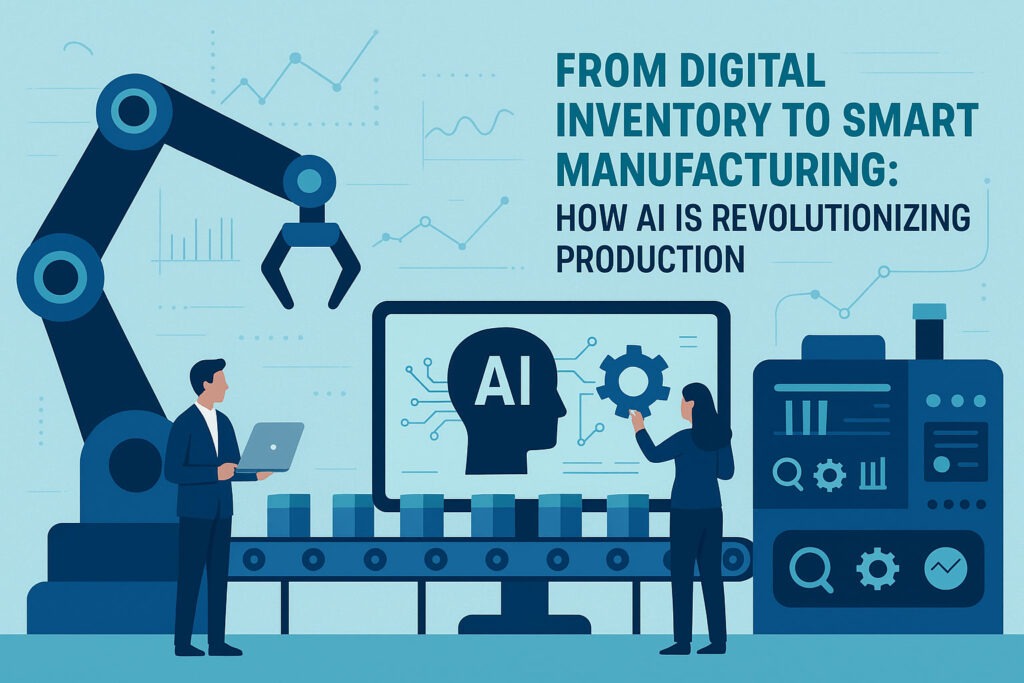The manufacturing industry is undergoing a major shift—from traditional inventory-heavy models to lean, agile, and tech-driven systems. One of the most transformative forces enabling this evolution is Artificial Intelligence (AI).
As digital inventory and just-in-time production models gain traction, the integration of AI is emerging as the next frontier—pushing manufacturing toward greater efficiency, agility, and innovation.
The Evolution of Manufacturing: Embracing AI
Traditional manufacturing relies heavily on static processes and reactive responses. In contrast, AI brings in a more dynamic and predictive layer to operations:
-
Predictive Maintenance: AI algorithms analyze machinery data to anticipate equipment failures before they happen, minimizing costly downtime.
-
Quality Control: Machine learning models monitor production in real-time, instantly identifying defects and ensuring consistent product quality.
-
Demand Forecasting: AI tools process historical data, market trends, and customer behavior to create more accurate demand forecasts and streamline inventory levels.
Key Applications of AI in Manufacturing
The application of AI isn’t limited to a single point in the production process. It spans across operations to deliver end-to-end value:
-
Smart Production Scheduling: AI considers variables like machine capacity, labor availability, and order priority to optimize production timelines.
-
Adaptive Supply Chain Management: Real-time analytics allow manufacturers to respond quickly to disruptions, such as material shortages or delivery delays.
-
Energy Optimization: AI can identify inefficiencies in energy usage across facilities, helping companies reduce both costs and environmental impact.
Case in Point: AI-Driven Efficiency Gains
A mid-sized electronics manufacturer, for example, implemented AI solutions to address high defect rates and production delays. Within months, the company saw:
-
A 30% decrease in product defects
-
A 25% increase in production efficiency
-
A 15% reduction in energy consumption
These results were achieved by combining real-time monitoring, predictive analytics, and smarter scheduling.
Looking Ahead: The Future of Smart Manufacturing
Integrating AI into manufacturing processes is not just a tech upgrade—it’s a strategic necessity. In today’s volatile and fast-moving markets, manufacturers need:
-
Agility to respond quickly to changing demands
-
Sustainability to reduce waste and optimize resources
-
Innovation to remain competitive and scalable
AI empowers manufacturers to achieve all three.
Conclusion
The path from digital inventory to smart manufacturing is already being paved, and AI is laying the bricks. Companies that adopt these intelligent systems will not only improve operational performance but also future-proof their business for the challenges ahead.
